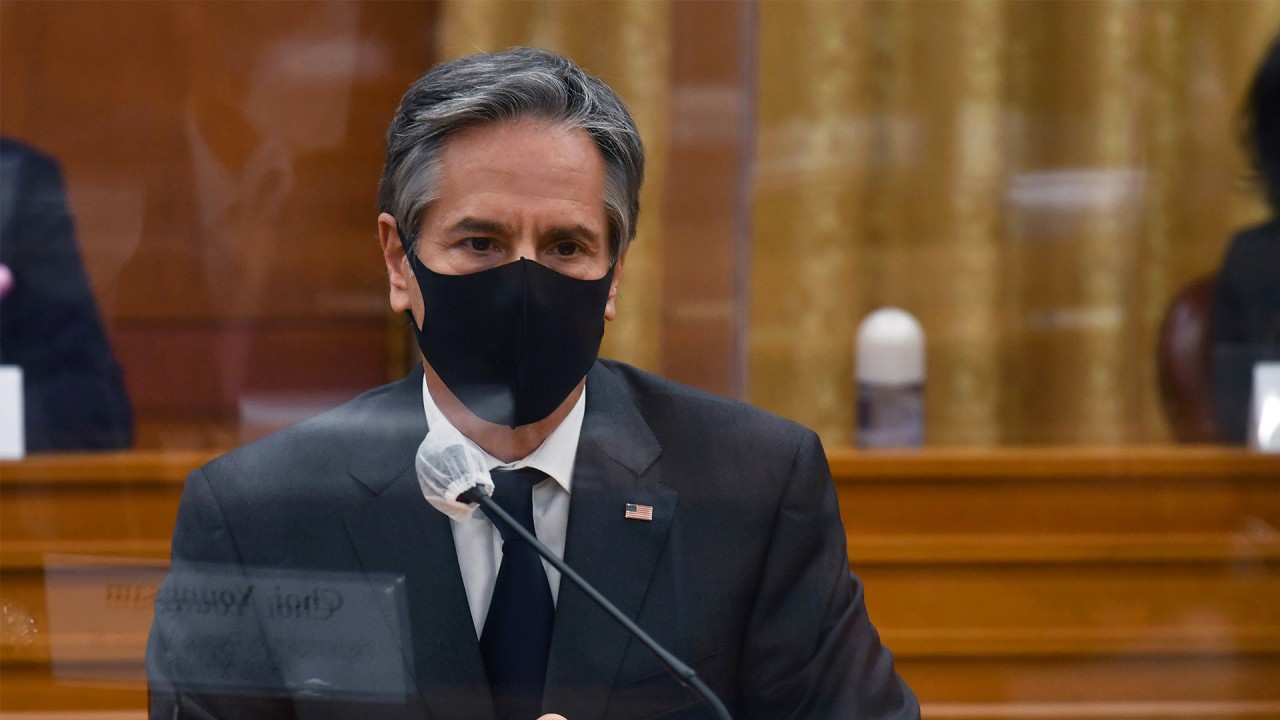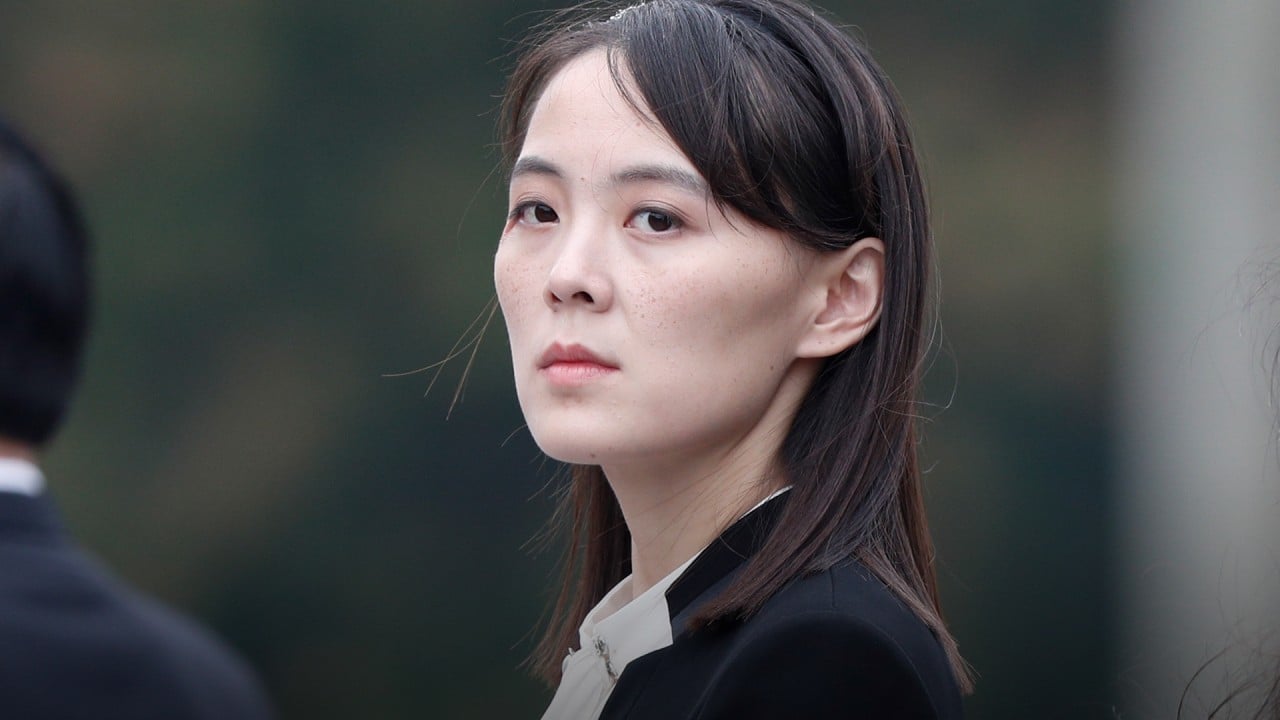
In South Korea, Austin and Blinken continue US message of countering China’s ‘coercion and aggression’
- The US secretaries of state and defence also reaffirmed Washington’s commitment to the alliance with Seoul, and to the denuclearisation of North Korea
- The improvement of ties between Japan and South Korea was discussed as crucial to deal with threats ‘on and around the Korean peninsula’
After his meeting with defence minister Suh Wook, Austin on Wednesday said the alliance with South Korea had never been more important given the “unprecedented challenges” posed by North Korea and China, calling the compact a linchpin for peace, security and prosperity in Northeast Asia.
“I am here today to reaffirm the United States’ commitment to the defence of the Republic of Korea,” Austin said, according to the Yonhap news agency. “You and I can both agree that military readiness is a top priority, and that our combined readiness must ensure that we are ready to fight tonight, if needed.”
US and Japan warn against China’s ‘coercion and destabilising behaviour’
According to a South Korean defence ministry official, Austin also said the improvement of ties between Japan and South Korea was crucial for them to deal with common threats on and around the Korean peninsula.
“Secretary Austin said three-way cooperation through improvement in Seoul-Tokyo ties is crucial, and Suh said the government will push for plans for cooperation with Japan,” the official said.
Suh and Austin agreed on the importance of rule-based international order, the South Korean defence ministry said in a press statement, although it stopped short of accusing China of undermining the status quo.

At a separate meeting with South Korean foreign minister Chung Eui-yong, Blinken said the US would work with Seoul, Tokyo and others towards the denuclearisation of North Korea, reaffirming that the alliance was “unwavering” and “iron clad”.
“We want to achieve our shared vision for a free and open Indo-Pacific, and for human rights, democracy and rule of law,” Blinken said. He also took a swipe at Beijing, accusing it of “using coercion and aggression to systematically erode the economy in Hong Kong, undercut democracy in Taiwan, abuse human rights in Tibet and asserting claims in the South China Sea that violate human rights law”.

02:17
China using ‘coercion and aggression’ against Hong Kong and Taiwan, says Blinken
As expected, there was no discussion on Seoul’s participation in a regional coalition against Beijing – whose support is also crucial in achieving a breakthrough with Pyongyang, which relies on China as its biggest trade partner and diplomatic backer.
Suh on Monday said Seoul had not received an official invitation from Washington to join the Quadrilateral Security Dialogue, or Quad – a loose security grouping involving the US, Australia, India and Japan – to counter China’s growing influence in the Indo-Pacific
The American and South Korean foreign and defence ministers will also hold a “2+2” meeting on Thursday, the first in five years.
The meetings in South Korea come after Austin and Blinken met their Japanese counterparts in Tokyo on Tuesday and Wednesday, with both sides in a joint statement singling out China for behaviour that was “inconsistent with the existing international order”.

02:19
Kim Jong-un’s sister warns US not to ‘cause a stink’ with North Korea
Seoul had previously hinted it could join an expanded Quad so as to make the group appear less anti-China and more focused on cooperation among like-minded partners.
But while South Korea, like Japan, is considered a staunch US ally in Asia, there have been concerns among policymakers and observers that participating in any multilateral alliance that could be perceived as a regional version of the North Atlantic Treaty Organization (Nato) would destabilise rather than promote security in the Asia-Pacific.
South Korea paid a steep economic price after it angered China in 2017 by deploying the US-designed Terminal High Altitude Area Defence (THAAD) anti-missile system, which featured radar that Beijing believed could be used to penetrate its territory.
The economic fallout for South Korea – which included Beijing’s ban on tourists going there – was a loss of US$7.5 billion that year alone, according to the Hyundai Research Institute.
South Korea affirms cool Japan relations, warm China ties in defence white paper
China’s Foreign Minister Wang Yi visited South Korea in November last year and the two sides reached an agreement on launching a “2+2” dialogue on diplomacy and security.
“These are all hard-won results. If Seoul joins the Quad, it will destroy such mutual trust. It must think it over rationally and thoroughly,” said Cheng Xiaohe, an associate professor with the School of International Studies, Renmin University of China, in a commentary for the Global Times tabloid last week.

On Tuesday, Kim Yo-jong – the powerful sister of North Korean leader Kim Jong-un – criticised ongoing low-level joint military drills between the US and South Korea, and warned the US to refrain from “causing a stink” if it wanted peace for the next four years.
Yang said this was a message to Washington and Seoul to “choose between peace through dialogue and cooperation, or confrontation through sanctions and pressure”.
The US was expected to complete a thorough review of its policy on North Korea in the coming week, Blinken said in Tokyo. The US and South Korea earlier this month agreed that Seoul would increase its share of the costs of hosting US troops by 13.9 per cent under a deal that would last until 2025. Negotiations over the cost-sharing had badly strained the alliance, with the Trump administration demanding Seoul pay up to 400 per cent more.
Another issue that is expected to come up during the current meetings in South Korea is the transfer of wartime commanding rights over South Korean troops from Washington to Seoul, with the current structure being a legacy from the Korean war. Seoul hopes to expedite the transition and complete it before the end of the Moon administration.
Before former president Donald Trump took power, the US was in favour of handing over the wartime operational control (OPCON) to the South at an early date. “But the US now appears to be hesitating to do so as it apparently wants to use the US troops in the South as part of its deterrence against China,” said Yang of the University of North Korean Studies.
John Delury, a China expert at South Korea’s Yonsei University, told Reuters South Korea’s desire to avoid antagonising China while strengthening ties with the US might be a useful reality check for American officials.
“South Korea’s desire to get along with both the US and China is shared pretty widely across the region,” he said. “I’m not sure it’s sustainable to push on a hawkish Indo-Pacific when that’s not what the Indo-Pacific wants.”

